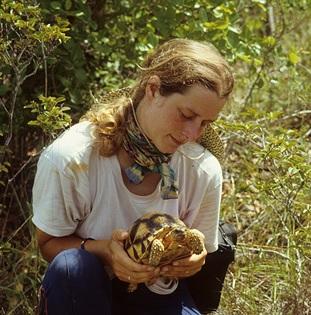
 Back to Career Explorer
Back to Career Explorer
Ecologist
Ecologists study the interaction between organisms and their environment. There are different levels of organization that an ecologist may study including species, population, community, ecosystem, biome, and biosphere. With those in mind, an ecologist can get even more focused in their work, and research specific organisms and environments. Many ecologists specialize in areas such as botany, entomology, zoology, or mycology.

